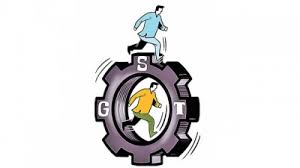
Tax Reforms to Lubricate Economy
The economy is in shambles and there is no prescription to revive it. While inflation is robbing people of their power to purchase, high taxes are rubbing salt to the injury. It is time India takes a fresh look at its direct taxes and abolishes them.
Tax reforms are considered a first in checking inflation.
The average inflation during the last four years comes to 41.93 per cent. The rising inflation is hitting factory output that came down to a low of minus 1.8 per cent, a consistent trend seen for the last many months.
Food inflation rose at 14.2 per cent annually and vegetable prices rose by 61.6 per cent.
Correspondingly owing to high taxes, Rs 4 lakh crore, termed as black money, is reported to have been parked abroad in 2011.
The industry chambers led by PHD Chamber of Commerce have now started demanding doing away with personal income tax. At least for the first time a major political party, BJP, says they are mulling its abolition, according to its leader Subramanyam Swamy.
Various so called reforms be it the pension bill, insurance bill or opening up some other sectors to the foreign funding are unlikely to help the common man. The opening up of the retail sector is playing havoc. The organized retail chains remain unchained and are known to fuel inflation through manipulative practices.
The only sector that is gaining in the economy is the retail sector. Even they are known to use the wholesalers to maximize their profits. The vegetable prices used to have seasonal variations but the retails chains have twisted the market dynamics that has resulted in severe price rise.
The consumers are losing at all levels. Nobody is there to help them. In such a situation dodging of taxes become natural by all those who can do it. Even gold imports are a way to shield wealthy people against paying taxes.
While such activities help the “capable” ones escape the tax net, the large salaried middle class become a victim. They can neither escape paying taxes nor can they shield themselves against high inflation.
It is reflected in the falling savings rate. Three years back it was around 33 per cent. It came down to 30 per cent in March this year and is set to fall to 27 per cent according to Japanese brokerage firm Nomura.
This is an ominous sign. One reason for the fall is attributed to income tax on bank deposits. The poor are the worst hit. They earn less and pay more on taxes. Though technically it can be reclaimed from the I-T department, but the procedure is so cumbersome most prefer to give it a go by.
The richer ones have options to put their money in parallel “underground” market instruments and operate through hawala. They not only save their money but also go out of the tax net.
And sizable sections have access to foreign banks again through the hawala route and stack precious money for the benefit of country’s detractors. On an average, between 2002 and 2011 every year Rs 1.6 lakh crore went as illicit outflow – a total of Rs 15.7 lakh crore in about ten years.
Interestingly, it is far more than the accrual of income tax to the exchequer, according to the Comptroller and Auditor General compiled data. In 2002-03, Rs 36866 crore was collected as income tax, in 03-04 – 41379 crore, 04-05 49258 crore, 05-06 it rose to Rs 55976 crore, 06-07 yielded Rs 75093 crore, 07-08 it was 102644; in 08-09 it was Rs 106046 crore, in 09-10 it touched Rs 122370 crore, in 10-11 rose to 139,102 crore and 11-12 it touched Rs 164,525 crore.
It may be noted that the sudden rise since 2009-10 is attributed not to a booming economy but large chunk of benefits that had gone to government employees because of pay revision as Sixth Pay Commission recommendations. In reality, the business and other classes are not contributing much.
In fact, during this period, excise duty collection has decreased. It is evident from the drastic fall in excise duty collection since 2008-09. It is a pointer to the poorer economic activities. During the same period, annual I-T refunds have touched over Rs 70,000 crore.
The cost of tax administration during this period has almost doubled to around Rs 2 lakh crore a year. The assets of the income tax department have quadrupled. In other words, even if the yield has gone marginally higher, the outgo of revenue has increased.
The TDS on bank deposits have also increased cost on banks as well as individuals. It has made banking expensive.
Virtually less than 3 per cent or 4 crore people of 121 crore are made to pay income-tax. It is the core salaried middle class who pay it and the rest divert it to other channels.
The industry says that each income-tax raids may yield the government little, but it robs it off crores. Where does this money go?
Income tax is not helping the economy much. It is leading to erosion of the economy.
The government has lop-sided approach. If I-T is abolished, the government would not have to burden itself for recapitalizing public sector banks. Not only the middle class, even the business class would like to put in their money in less risky bank deposits. It would increase availability of funds to the banks.
The reforms have to come in taxes. Direct Tax Code does not address the core issues. In fact, it is estimated that if I-T is abolished the country would gain in two major ways – savings rate would increase and funds would stay in the country and not siphoned off.
It also calls for rationalization of excise duties and service tax. In a World Trade Organisation hit economy, excise duties should be at a flat rate based on 21 major commodities that give 91 per cent of the revenue.
The rationalization of taxes could boost the economic activities, increase fund availability and remove the undue fear of the “raid and notice culture”. That would be a great lubrication for the economy.


